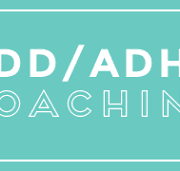The Centers for Disease Control reports a rise in the number of children diagnosed with ADHD.
Their report indicates a 10% rise in pediatric ADHD in the Midwest in the past 10 years. The looming question—to which no one can provide a definitive answer—is this: Does the increase mean more kids with “real” ADHD, or just more kids with the ADHD label? The difference is critical.
ADHD is considered a “mental disorder,” and as such is defined by the American Psychiatric Association (APA). It is believed to affect, according to APA’s most recent diagnostic manual, 3%-7% of school-aged children. If prevalence rates are said to be significantly higher (and they are, according to this article by the CDC), it is fair to use the term “epidemic” to describe the rise in ADHD.
ADHD symptoms can be “caused” by numerous triggers: vision problems, hearing problems, spinal misalignments, poor sleep and/or diet, underdeveloped prefrontal lobes in the brain, and structural “abnormalities” in other brain parts. Environmental triggers such as television, video games, and busy schedules can add to a child’s propensity to develop ADHD symptoms.
Are symptoms the same thing as the diagnosis? No. A psychiatric diagnosis confers that that the caues of “problems” are known. It is not simply confirming that a variety of symptoms are present. When a mental health professional diagnoses ADHD, she confirms that she KNOWS, for example, that hearing problems are not the primary cause of a child’s inattention. An ADHD diagnosis confirms that food allergies are not the primary cause of hyperactivity. An ADHD diagnosis proposes that ADHD problems do not stem from an untreated sleep disorder. The problem with the current ways in which children get diagnosed is that many (competent and well-meaning) care providers simply do not have the time, information, or other resources to properly evaluate a child for ADHD. Is it any wonder that ADHD is so easily and so often misdiagnosed and, thus, mistreated?
To get an accurate ADHD diagnosis, Plum Tree evaluates a child with a series of interviews, observations, and tests to determine if ADHD is the appropriate diagnosis. An ADHD diagnosis should only be applied after the mental health provider has:
- Spent lots of time with your child (more than 15 minutes)
- Obtained a detailed and structured history of your child’s health, behavior, and functioning from you AND others, including school professionals, babysitters, etc.
- Administered a computer test (TOVA) to measure objectively your child’s inattention and impulsivity rates
- Ruled out other mental health conditions and the possibilities of other health conditions











